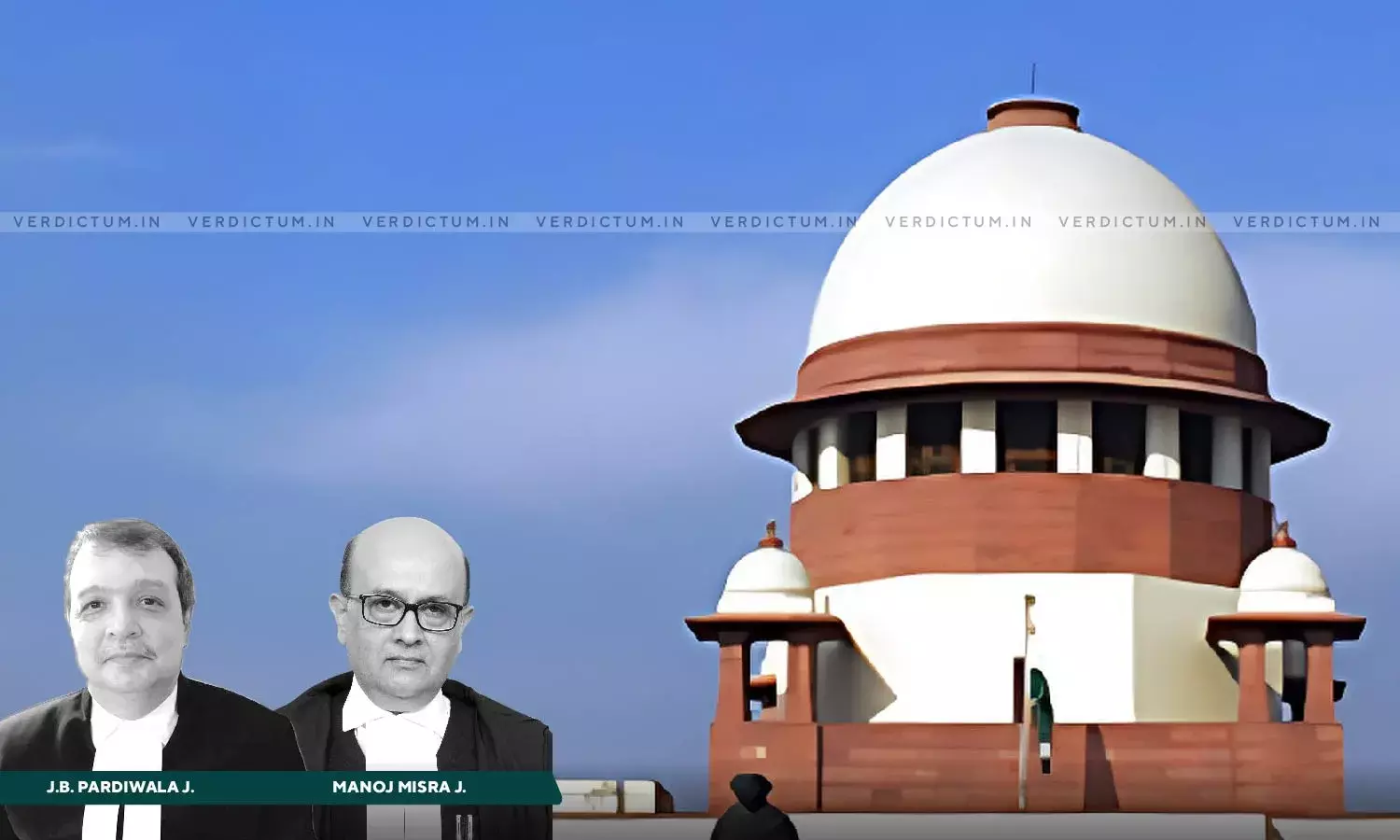‘There's No Limitation Period Prescribed To Do Substantial Justice’: SC Sets Aside Patna HC Order In A 5 Decades Old Land Acquisition Case
The Supreme Court set aside the order of Patna High Court in a five decades old land acquisition matter.
The Court said that the High Court failed to ask State some important questions including why it did not give the compensation amount in the same year in which the land acquisition happened and made the appellant run from pillar to post.
The Court was hearing an appeal that arose from the order passed by the High Court by which the High Court disposed of the Letters Patent Appeal by asking the appellant to file an appropriate application before the concerned authority for disbursement of the value of the land that was assessed by the authorities.
The bench comprising Justice J.B. Pardiwala and Justice Manoj Misra observed, “It is a well settled position of law that after the award towards compensation is passed, if the owner of the land is not satisfied with the quantum, he can even file an appeal for the enhancement of the same…...There are many issues arising in this litigation and the High Court should have taken little pains to ask the State why it made the appellant run from pillar to post.”
"The condonation of delay is a matter of judicial discretion, which must be exercised judiciously and reasonably in the facts and circumstances of the case. As held by this Court, it would depend upon the breach of fundamental rights, and the remedy claimed, and when and how the delay arose. There is no period of limitation prescribed for the courts to exercise their constitutional jurisdiction to do substantial justice.", it added.
Brief Facts-
In 1976, a notification under Section 4 of the Land Acquisition Act was issued for the construction of State Highway by the State of Bihar. The land owned by the appellant Dharnidhar Mishra was included in Section 4 of the notification. In 1977, the land of the appellant was acquired. However, it is the case of the appellant that not a single penny was paid to him towards compensation. Appellant approached the High Court with the Writ Petition which rejected the same only on the count that the petition had been filed after forty-two years of the acquisition.
The Court stated that it failed to understand the basis of the amount figure that was arrived at by the authorities and affirmed by the Court.
The Court stated that the first thing that the High Court should have enquired with the State is as to why in the year 1977 itself, that is the year in which the land came to be acquired, the compensation award was not passed.
The Court further stated that the High Court should have enquired why it took forty-two years for the State to determine the compensation figure. The High Court should also have asked the State for the basis of the determination of the amount towards compensation.
According to the Court, the High Court proceeded on the footing that the amount of Rs 4,68,099 has been assessed and it is now for the appellant to file an appropriate application and get the amount disbursed in his favour.
The Court also observed, “In 1976, when the land of the appellant came to be acquired the property right was a fundamental right guaranteed by Article 31 in Part III of the Constitution. Article 31 guaranteed the right to private property, which could not be deprived without due process of law and upon just and fair compensation.”
The Court mentioned the decision in K.T. Plantation (P) Ltd. v. State of Karnataka, (2011) 9 SCC 1 and observed that the right to property ceased to be a fundamental right by the Constitution (Forty-Fourth Amendment) Act, 1978, however, it continued to be a human right in a welfare State, and a constitutional right under Article 300-A of the Constitution. As per the Court, Article 300-A provides that no person shall be deprived of his property save by authority of law. The State cannot dispossess a citizen of his property except by the procedure established by law. According to the Court the obligation to pay compensation, though not expressly included in Article 300- A, can be inferred in that Article.
Finally, the Court allowed the appeal and remitted the matter to the High Court for fresh consideration.
Cause Title: Dharnidhar Mishra v. State of Bihar (Neutral Citation: 2024 INSC 415)




